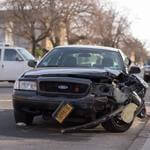

Going to court for Stop Sign Ticket
An infraction case in court is usually pretty straightforward - everyone gathers in the room, and the judge calls people up one by one, determining whether each person is contesting the ticket ("I did it") or seeking mitigation ("I did it, but here is why it shouldn't be so severe."). When a judge hears your side of the story, he or she listens to the opposing side (if a police witness is present) and renders a judgment on it. For a matter with a witness, it usually takes no more than 10 minutes from beginning to end.
The consequences should already be noted on the ticket, so you should already know what they are. It is highly unlikely that the judge will make things worse than what is outlined on your ticket, unless there is some unusual occurrence (such as your acting in contempt of court).
A person should be aware of the difference between contesting a ticket and requesting mitigation. Typically, a person contesting a ticket will only be given a decision as to whether they committed the offense. The fine on your ticket will stand if you were found to have violated it. Mitigators admit to the charges they have been charged with but provide evidence as to why the punishment should not be as severe as it otherwise would be. Your reasons will be considered by the judge, and the fine will be reduced. In that case, you will be charged the ticket fine.
Learn more: Dismissed traffic ticket on record
If you have any questions or need help with your Traffic Ticket, DUI, DWI, Criminal Case, Auto Accident or any other related questions, just give us a call at 425-278-9922 or email us at ken@myticketdismissed.com.









